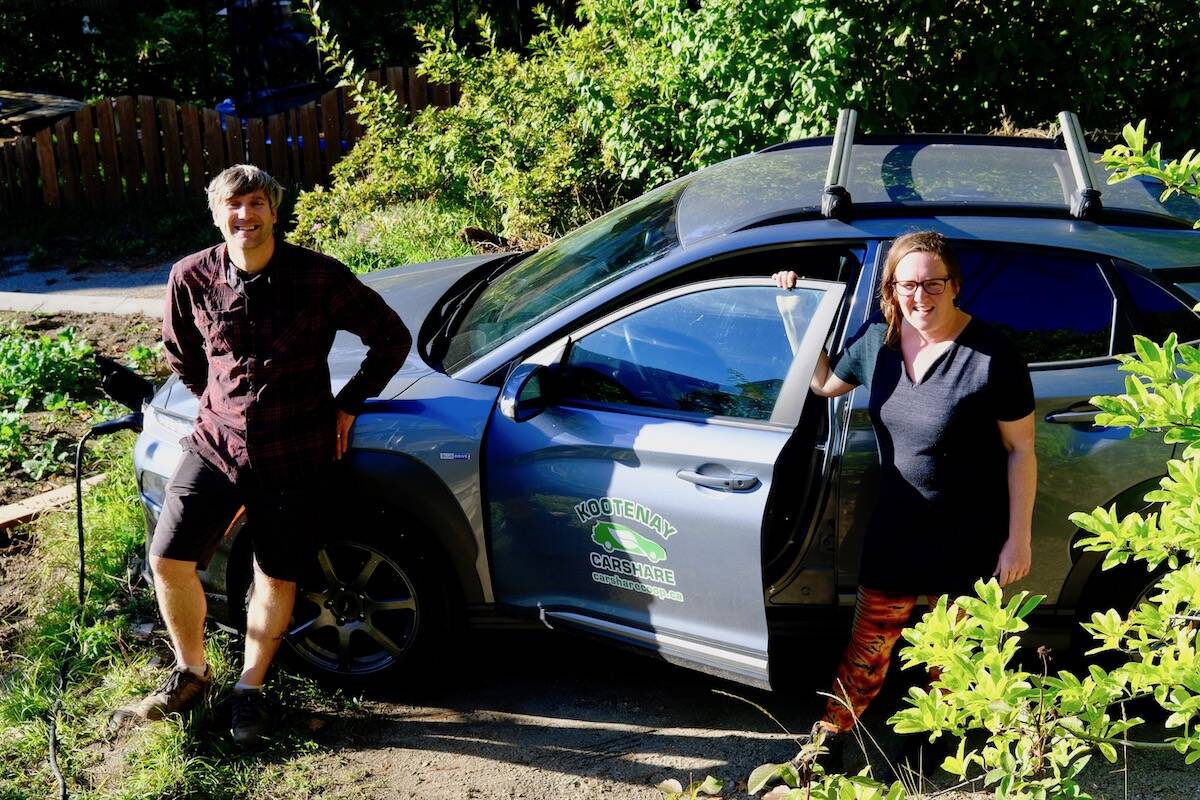A Nelson group is paving the way for low-speed electric vehicles in the city.
Slowly making their presence known on streets across the continent, these vehicles look like a cross between a golf cart and a quad.
Low-speed zero-emission vehicles are electric powered with a range of 90 kilometres, and can be recharged using a standard wall plug. Their speed maxes out at 40 km/h and they are designed to be used for in-town travel on streets with speed limits of 50 km/h or less. They cost about half the price of a regular car.
The Kootenay Carshare Co-op will play a key part of the introduction of the vehicles. The coop plans to buy one or two, and amalgamate them into their current sharing system.
“The plan is to get one of these vehicles in Nelson this winter, probably January or February, to prove that these vehicles can go up and down Nelson roads in the winter,” said the co-op’s executive director Colleen Doyle. “Because obviously the reason why we went this way instead of electric bikes is because we wanted something that was an all-year-round solution.”
To make this happen, two things must be done.
First, the city must consider whether it needs to pass a bylaw allowing low-speed vehicles on the streets.
Second, the co-op would come up with grant money or donations to purchase at least one zero-emission vehicle. Doyle says this is in the works, and she is confident at least one will join the 16-vehicle Nelson fleet soon.
In 2019, the carshare co-op purchased two electric cars, one of which operates in Nelson and the other in Revelstoke. Doyle said these vehicles have, in addition to providing an emission-free vehicle to members, helped to introduce the community to electric vehicles.
“It’s a great opportunity for people to get exposure to the vehicle,” she said, “and then decide for themselves if they want to purchase one. So that’s the same thinking that we’re going with here. Our vision is that there will (eventually) be a bunch of (low-speed vehicles) being driven around town.”
Doyle said she hopes the city will eventually institute a plan similar to its low-interest financing program for purchases of electric bikes, in which the loans are repaid on the homeowner’s Nelson Hydro bill.
“The biggest reason why the carshare wants to be involved in this is that our stats show that an overwhelming percentage of our trips are under 11 kilometres. A motorized combustion engine vehicle really is not needed for that kind of a trip.”
The only manufacturer in Canada
The only manufacturer of Transport Canada-approved low-speed vehicles in Canada is Vernon-based SC Carts, whose main business is making golf carts.
The company’s CEO Jeff Holomis told the Nelson Star that Transport Canada has authorized his vehicles as street legal, with approved tail lights, signal lights, headlights, windshield, seat belts, and other safety features.
He said he initially envisioned the vehicles for use in resort communities.
“And then it just happened to be good timing that the whole world went to electric vehicles,” he said, adding that his vehicles can appeal to people who want an electric vehicle but not a full-sized one.
He said the uptake is slow but steady.
“It’s an education process for the customer base. At first they’re going, you know, ‘Is this really allowed on the roads?'”
He said that sometimes the 50 km/h speed limit rule can be complicated.
“Where our facility is located here in Vernon, we have a 50 km/h road that takes us into town, but most people are doing 70 on it, or more, so that’s not really what it’s designed for.”
What it is designed for is a place like downtown Vernon, he said.
“Downtown, we’re faster off the line than most cars because we’re electric. So we’re not holding you up at intersections and things like that. And then by the time everyone’s doing 30 or 40 km/h, we’re not holding up traffic.”
The origin of the idea
The possibility of introducing these vehicles to Nelson was instigated by Nest Lab, a group convened by the City of Nelson, the Kootenay Association for Science and Technology, Interior Health, Nelson at its Best, and Selkirk College.
Nest Lab calls itself a social innovation lab, whose role is to come up with climate solutions for Nelson. The initiative is funded by the Vancouver Foundation and the Trottier Family Foundation. It’s a kind of think tank that recruits people with specific expertise and experience to collaborate in solving complex problems.
The group’s work is intended to further the implementation of Nelson Next, the city’s climate plan, which states that transportation and buildings are the leading sources of greenhouse gas emissions in the city.
Project head Steven Cretney says the low-speed electric vehicle is one of several ideas that came out of a series of workshops and brainstorming sessions over the past year, ideas that met a dual test of feasibility and community impact.
“The community impact is the (reduction of) greenhouse gases, and the feasibility is how much a local group could make it move forward without help from (such funding sources as) the federal government,” Cretney says. “It’s doable. You could achieve this and have a positive effect.”
The municipalities of Vernon, Sicamous and Oak Bay are among communities that have written enabling bylaws for low-emission vehicles.
Related:
• Nelson council approves climate change plan
• Nelson’s climate change plan calls for big changes in transportation, buildings
• Nelson offers financing for homeowners to purchase electric bikes
• Low-speed electric vehicles given green light for Sicamous roads
• Vernon company gets approval for street-legal, low-speed electric vehicles
bill.metcalfe@nelsonstar.com Like us on Facebook and follow us on Twitter


